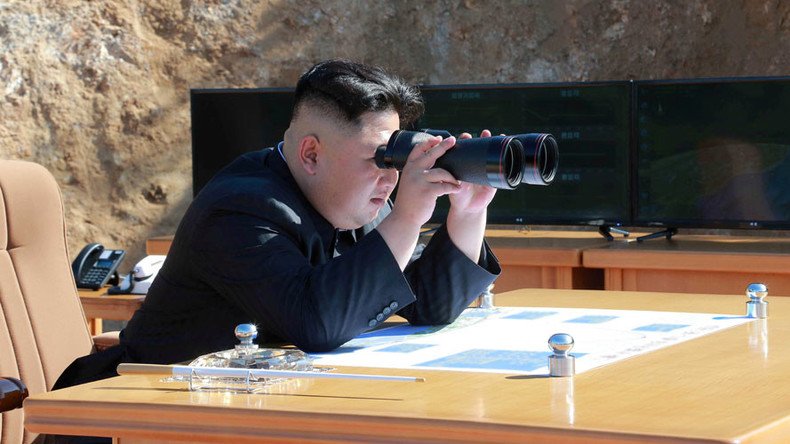‘US-N.Korea relationship problems can’t be outsourced to China’

If push comes to shove in the North Korean crisis, the immediate collateral damage could be Seoul, but clearly, Pyongyang is targeting America because it thinks regime change is its secret agenda, says Andrew K.P.Leung, Asian affairs specialist.
The US ambassador to the UN has warned North Korea that "the time for talk is over."
Time for talk on #NorthKorea ‘over’ – US envoy to UN #Haleyhttps://t.co/fbur0WvL19pic.twitter.com/EZcVihYYin
— RT (@RT_com) July 31, 2017
Nikki Haley said, “an additional Security Council resolution that does not significantly increase the international pressure on North Korea is of no value.”
It comes after North Korea test-fired an intercontinental ballistic missile on Friday.
President Donald Trump has accused China of being unwilling to tackle the North Korean issue seriously.
I am very disappointed in China. Our foolish past leaders have allowed them to make hundreds of billions of dollars a year in trade, yet...
— Donald J. Trump (@realDonaldTrump) July 29, 2017
The president vowed he wouldn't let the situation continue as it has been.
On Sunday, the US flew two supersonic bombers over the Korean Peninsula.
The aircraft were flanked by South Korean fighter jets in what is being seen as a show of force in the wake of the missile launch by Pyongyang.
RT: So US Ambassador Haley's comments are being interpreted by some as a threat to bypass the UN. Does this open the door to possible unilateral action by Washington?
Andrew Leung: That would be a very dangerous venture with unknown consequences. At the very least, North Korea has a huge battery of heavy artillery aimed at Seoul, the capital of South Korea. If push comes to shove, the immediate collateral damage could be Seoul. Also, it could fire missiles at Japan or Okinawa. Let alone the latest developed intercontinental kind of missiles that are set to reach LA. I think this is a very-very problematic move and I don’t think that the US is likely to resort to that.
But of course, all these threats and show of military forces is not going to solve the problem. And of course, the problem cannot be outsourced to China because clearly, North Korea and the Kim regime is targeting America which it sees as threatening regime change as a secret agenda and that is why it is hell-bent on acquiring its delivery systems for a nuclear arsenal.
‘Ready to use force’: US supersonic bombers, Japan & S. Korea fighters fly over Korean Peninsula https://t.co/F6h5uf0hMKpic.twitter.com/irxT9SR6Ms
— RT (@RT_com) July 31, 2017
RT: Haley and Trump have both called out China for allegedly not doing enough to challenge North Korea. How will China respond to these accusations? Will those comments by the US only add to the tension in the region?
AL: I think China is likely to caution restraint. Otherwise, the whole thing can get out of hand on all sides. It is likely to again push toward a situation where the North Korean regime, where Kim Jong-un, for example, can talk directly to Trump. I mean, that is the relationship between the two countries that caused all these problems in a first place. I think that just talking is not going to solve the problem. What North Korea wants is some sort of a guarantee for regime stability. For example, by way of a bilateral or multilateral peace treaty in exchange for some de-escalation of the nuclear program and also withdrawing some of the sanctions. Maybe both sides can work out some sort of a verifiable program of mutual de-escalation. I think that is the only feasible way forward.
RT: Is North Korea really a threat to the massive and technologically advanced US armed forces?
AL: Whether or not it is immediately able to deliver an intercontinental nuclear-armed missile, it is not really the most important thing. Obviously, North Korea is already armed to the teeth with conventional artillery. And this artillery is very close to Seoul, within less than a few hundred miles. The first collateral damage is the destabilization of the entire Korean peninsula. Just by using military coercion is unlikely to solve the problem.
The statements, views and opinions expressed in this column are solely those of the author and do not necessarily represent those of RT.












